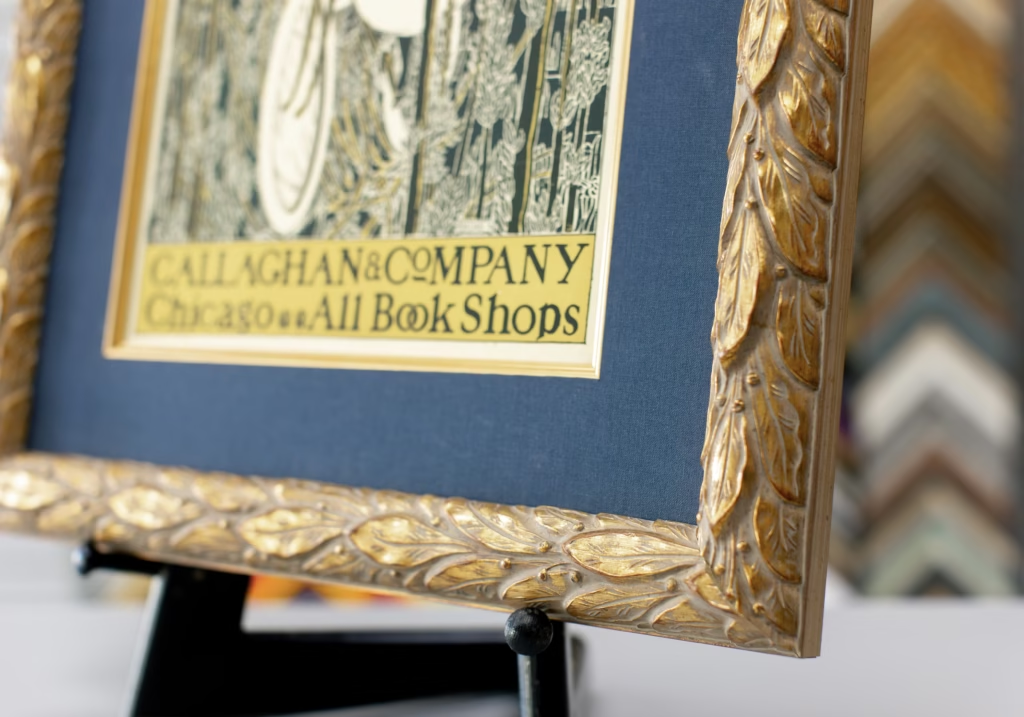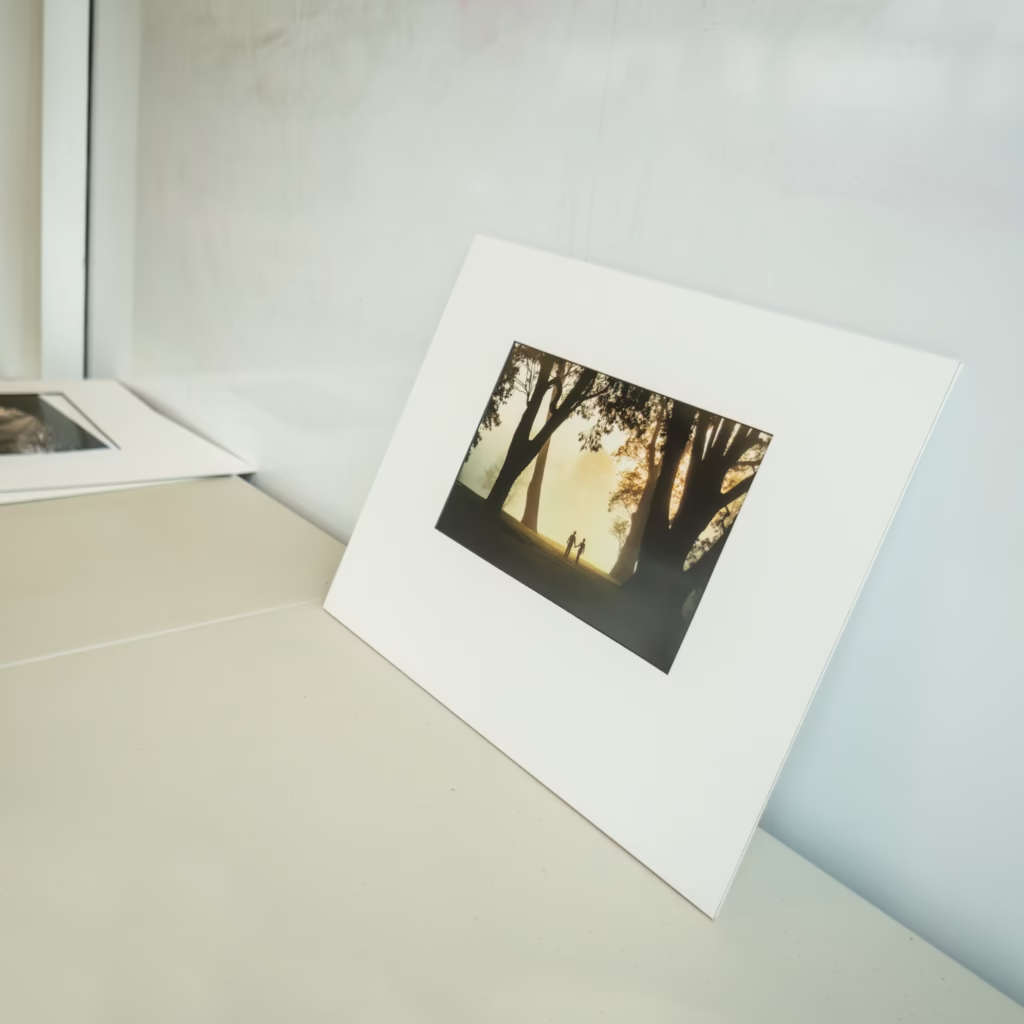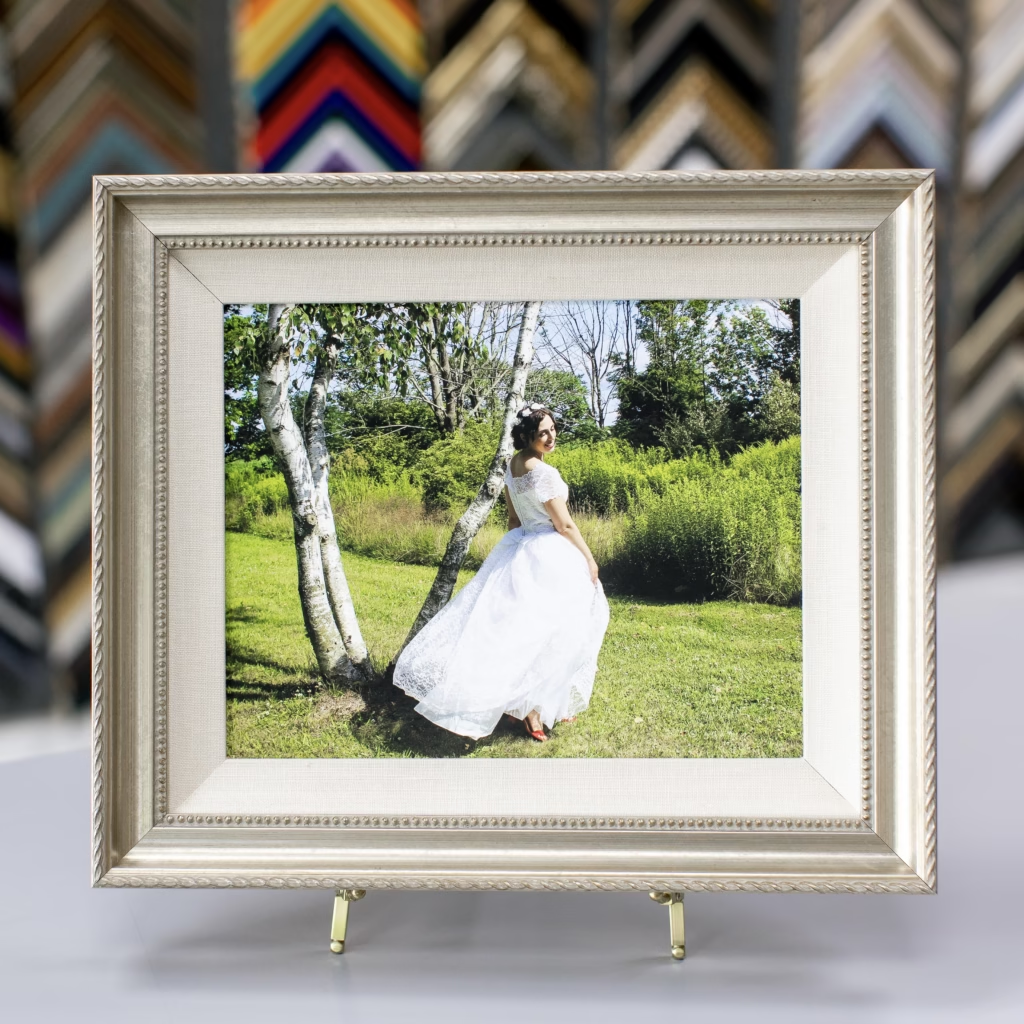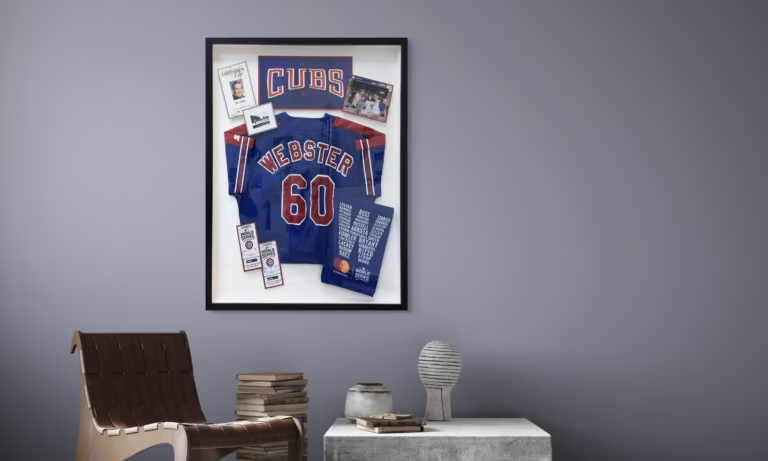There are a variety of different types of mounting techniques, and dry mounting is just one of them. Before you decide to display any type of photo or poster or mount any piece of artwork, you need to know which type of mounting method is ideal for you.
What is dry mounting?
Dry mounting is one of the three main techniques used for mounting a piece of art on paper or a backing board.
In general, mounting is the method used for holding your artwork in place within a frame. Custom framing allows for a few different types of mounting. If you want to permanently attach and flatten your artwork within a frame, then dry mounting is the method for you.
Dry mounting is permanent, whereas the other two major methods are either semi-permanent or incorporate the use of hinges. Semi-permanent mounting allows for the use of heat to remove a piece of art from its backing board sometime down the line. Both dry and semi-permanent mounting seek to simply flatten the artwork and remove creases or wrinkles.
Hinging is a technique used for more valuable items and attaches the artwork to a backing board or mat through the use of hinges or small pieces of tape. These materials allow for the mounting to be completely reversed at a later date.
FastFrame design experts utilize a heating method of application when it comes to dry mounting. Through the use of a vacuum press, backing board, and adhesives, designers fit your artwork into place.
The ultimate goal of this method is to flatten the artwork and remove any and all creases or wrinkles. It places the artwork permanently onto a backing board in order to reduce the ongoing effects of cockling or rippling.
What type of art should be dry-mounted?
Dry mounting is most commonly used with open-edition prints and posters. The method fits a particular need when it comes to transforming an otherwise ordinary work into something more special.
The technique is mainly for aesthetic purposes.
Remember that it is NOT reversible. If you’re unsure as to whether or not you will need to undo a mounting, ask a local design expert before you consider any type of method. Let them know what type of artwork you are looking to mount and frame.
Some items to avoid when it comes to dry mounting include any artwork that is susceptible to melting or that may contain oil-based products, wax, pastel, or charcoal-based art, and signed posters or prints.
The goal of dry mounting is to allow you to frame and prominently display an item rather than simply pin it up on the wall as is. It allows you to create something more with your existing decor. Once you’ve chosen dry mounting as your preferred method, you can then consult with a designer in order to find out what type of custom frame will work best with the piece of art.
Stop into a FastFrame location today and ask our local design experts if dry mounting is right for you.





